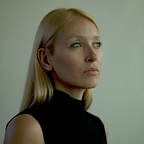‘The Power of Bottom-Up and Cross-Organizational Initiatives’ by Ewa Chomicka, POLIN Museum
This is a summary of Ewa Chomicka’s speech at ‘Museums Facing Extinction’ Conference on November 16th 2020.
When analyzing the power of bottom-up and cross-organizational initiatives, we need to begin by considering the three crucial questions raised by Ewa Chomicka, Manager of Museum Practices Lab at POLIN Museum, which are:
- How can we cooperate?
- How can we organize our forces?
- How can we join our forces in everyday activities for climate and pro-ecological initiatives?
The central idea behind how we think about our challenges and the importance of taking action in the climate topics is born out of the presumption that museums are institutions of long duration. This means that museums are considered to have significant social authority and a wide range of influences due to their nature as long duration institutions.
Following this realization, Ewa Chomicka says that museums can play an essential role in actions for the climate. Like individuals, these institutions can become agents of change, introducing pre ecological solutions, not just incidentally but systematically, which is more complicated but has a much more significant impact. This allows us to systematically shape our attitudes, that of our teams and audience.
The model that the “Green Team” of the POLIN Museum in Warsaw, Poland, is based on consists of four pillars.
1 — Green infrastructure
The first pillar is the Green building or Green infrastructure. This particular pillar encompasses topics such as:
- Reduction of the number of materials used such as paper, water, and electricity
- Reducing the amount of waste generated
- Increasing the efficiency of the waste segregation
2 — Museum Staff
The second pillar is thinking about the team of the museum staff as a healthy body. Ewa Chomicka puts it this way “It means that we would like to reflect ourselves and to make kind of outer reflection, to check if we are promoting work-life balance in our daily work, if the employee rights are respected.”
This pillar is concerned with if fair remuneration has its basis on transparent rules. Suppose there is good communication in our team and proper management of resources finally if we are genuinely doing our best to ensure energy-saving and simple paths in our daily cooperation.
3 — Local Communities
The third pillar is caring for the local community and system. This talks about museums creating awareness about their impact on the local community’s daily life and natural connections. When the museum takes a stand, it can improve local community cooperation conditions with residents and organizations — this includes shaping the local program and building relationships.
4 — Act locally, think globally
To the team of the POLIN Museum, placing ecology in the constant optics of the institution’s program is very important. Still, it is promoting eco changes that have been introduced as a museum trend with following, either by the audience or participants of events.
We have to understand that emphasizing communication can have an impact on both local and global change. An important quote from Lou Rawls says, “communication — the human connection — is the key to personal and career success.”
Unleash the potential of practice-sharing
Another point to note is how crucial the exchange of knowledge and practices with other cultural institutions and experts is. This point starts our part in building our agreement that we need to work in green teams. We should begin by systemizing our knowledge of the museum’s activities, what goes on in this area, and what kind of change we deserve.
